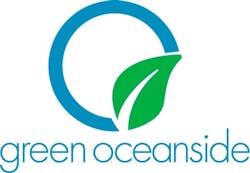City of Oceanside Pathogen Removal Study Recognized
The City of Oceanside, Calif.’s “Pathogen Removal Study” was recognized at the White House Water Summit held on March 22.
The comprehensive study of pathogens (harmful substances) is being conducted by Oceanside, Trussell Technologies and RMC Water, two California-based environmental engineering companies that are consulting with the city. The research is expected to have a wide reaching impact on efforts to continually improve drinking water supplies throughout California and potentially the nation.
The Oceanside study will examine the effectiveness of specific water treatment steps taken to remove and inactivate pathogens—some that are microscopic, and 100,000 times smaller than a human hair—from treated wastewater. Advanced technologies and monitoring methods, like ultrafiltration and PEG chloroform, will be applied in the study to test the presence and effective removal of viruses, protozoa, bacteria and other harmful pathogens like pesticide and pharmaceutical residuals.
“The Pathogen Removal Study will provide critical data for health departments to utilize in their assessment of drinking water supplies,” said Cari Dale, water utilities director for the city of Oceanside. “By improving the data that is available regarding the quality of source water, and the effectiveness of the most advanced treatment processes, health agencies may be able to better determine the level of additional treatment that source water must undergo.”
A direct result of Oceanside’s Pathogen Removal Study is that it will support the city’s goal of 50% water independence and will put an additional 1.6 billion gal of recycled water annually to beneficial use. This study builds upon the city’s partnership with the U.S. Bureau of Reclamation, which has coordinated with Oceanside for over 20 years on the Mission Basin purification facility.
This city/federal partnership helped develop the Mission Basin Indirect Potable Reuse Project that seeks to reduce Oceanside’s dependence on imported water while satisfying new California health regulations for indirect potable reuse. The project is an important part of Oceanside’s long-range water resource planning, with over 80% of Oceanside’s drinking water imported from hundreds of miles away (via the Colorado River and the Sacramento-San Joaquin Delta). Roughly 17% of the city’s water supply comes from a groundwater source that depends on the sustainability of the Mission Basin and the ongoing operation of the Mission Basin Desalting Facility.
“In this time of drought and water stress, potable reuse has the potential to greatly increase the reliability of our nation’s supply,” said Dr. Shane Trussell, president of Trussell Technologies. “Oceanside’s Pathogen Study addresses a critical information gap, allowing the country to move forward more confidently with safe potable reuse projects that are protective of public health.”
“We are proud to lead a study that can provide improved data to the state of California agencies and help set an example for other water agencies to consider,” said Dale.
Source: City of Oceanside
